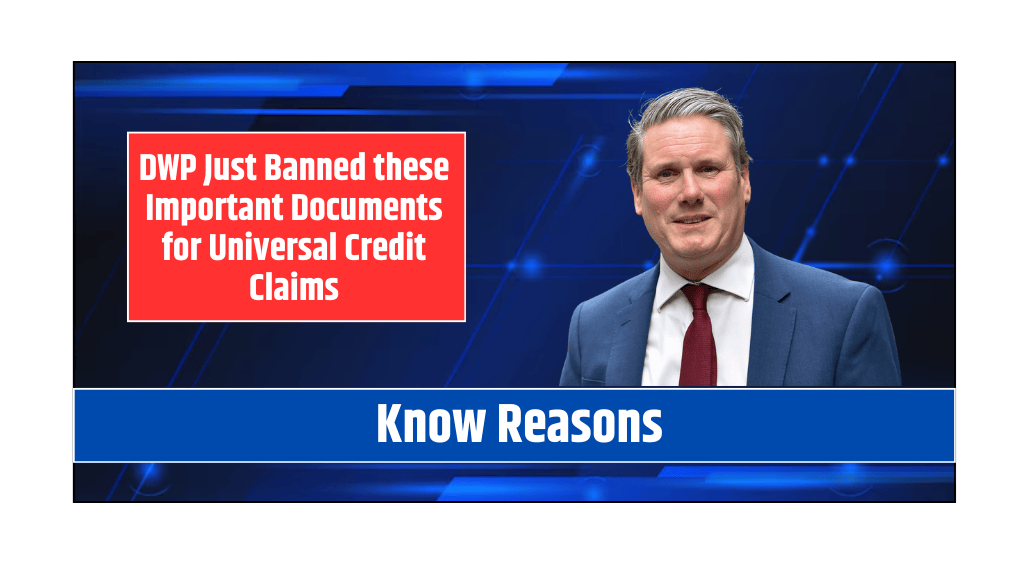The Department for Work and Pensions (DWP) has made an important change to the way people prove their identity when applying for Universal Credit. From April 8, 2025, some documents that were previously accepted are no longer valid for online identity checks.
What Is Universal Credit?
Universal Credit is a monthly payment provided by the UK government to help people with their living costs. It is available for people who are:
- On a low income
- Out of work
- Unable to work due to health or other reasons
As of January 2025, about 7.5 million people in Great Britain were receiving Universal Credit, and this number continues to rise.
Who Can Claim Universal Credit?
You may be eligible if you:
- Live in the UK
- Are 18 or over but below State Pension age
- Have £16,000 or less in savings
- Are 21 or under, studying up to A-level or equivalent, and without parental support
Why Is Identity Verification Important?
To claim Universal Credit, you must prove who you are. This helps prevent fraud and ensures the right person receives the payment.
You can verify your identity through:
- Online identity verification
- Face-to-face appointments
- Documentary evidence
- Phone or biographical interviews
For online verification, two items such as a valid UK passport, credit record, or recent Self Assessment return may be used.
If you’re unable to use these, the DWP will arrange other ways like face-to-face checks or phone interviews.
What Has Changed in April 2025?
The DWP has removed certain documents from being accepted for online identity verification.
- April 6, 2025: Tax credits were removed as a valid method (since tax credits officially ended on April 5).
- April 8, 2025: Payslips and P60s are no longer accepted for online verification.
This means people applying for Universal Credit can no longer use payslips or their P60 as proof of identity online.
The government says the required documents may differ depending on your situation and will be explained during your application process.
The DWP’s updated identity verification rules aim to improve security and reduce fraud in the Universal Credit system. From now on, payslips and P60s are no longer accepted for online ID checks.
If you are applying for Universal Credit, make sure you have other valid documents like your UK passport, credit history, or Self Assessment details ready. If you can’t verify online, don’t worry—face-to-face or phone interviews are available. Always check the latest updates on the official gov.uk website before applying.
FAQ’s
What changes have been made to Universal Credit ID verification in April 2025?
From April 8, 2025, the DWP no longer accepts payslips and P60s as valid forms of online identity verification for Universal Credit applications.
Can I still apply for Universal Credit if I don’t have a UK passport?
Yes, if you don’t have a UK passport, you can still prove your identity using other methods such as face-to-face appointments, phone interviews, or other approved documents.
Why are payslips and P60s no longer accepted?
The DWP has removed these documents to improve the security and reliability of the online identity verification process for Universal Credit.
What documents can I use for online identity verification now?
You can use a valid UK passport, Self Assessment returns, credit history, or other forms of identification approved by the DWP.
What should I do if I can’t verify my identity online?
If online verification isn’t possible, the DWP will arrange face-to-face appointments or phone-based interviews to verify your identity.






